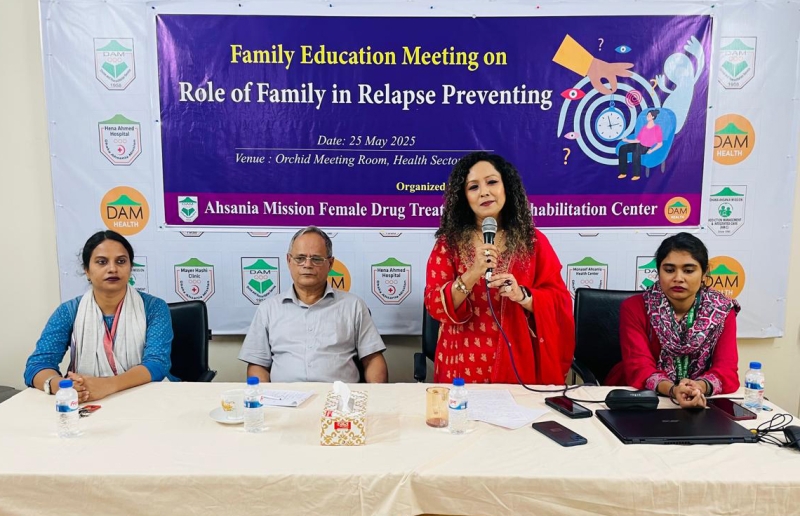- Puppet show enchants Children as Boi Mela comes alive on day 2 |
- DSCC Admin Salam’s drive to make South Dhaka a ‘clean city’ |
- 274 Taliban Dead, 55 Pakistan Troops Killed |
- Now 'open war' with Afghanistan after latest strikes |
- Dhaka's air quality fourth worst in world on Friday morning |
Family Support Key to Preventing Drug Relapse: Experts

Mental stress, anxiety, and depression have become increasingly common in today’s society, leading many individuals to turn to addictive substances. While various treatments for addiction recovery are available, a lack of family awareness and support often leads clients to relapse into old habits, experts have warned.
These observations were shared at a discussion titled “The Role of Family in Preventing Relapse”, organised by Ahsania Mission Female Drug Addiction Treatment and Rehabilitation Center. The event took place on Sunday (25 May) at 11:00 AM in the Health Sector conference room of Dhaka Ahsania Mission in Shyamoli, Dhaka.
Psychologist Dr Md Akhtaruzzaman Selim, the chief guest, stressed the vital role of family members in the recovery process. “Instead of criticism, family members should respond with love, empathy, and support. Helping clients maintain a healthy lifestyle can significantly reduce the risk of relapse,” he said.
Dr Selim emphasised that families should remain vigilant to early warning signs of relapse and encourage continued follow-up care. He shared detailed insights on relapse prevention strategies during his address.
Senior Psychologist Rakhi Ganguly, Center Manager Ms Manwara, Assistant Manager Rozina Khatun, Counselor Mahmuda Alam, Case Manager Sharifa Khatun, and other staff of the centre also participated in the programme.
The event underscored Dhaka Ahsania Mission’s continued commitment to building a drug-free society. Since 2014, its Shyamoli-based centre has been working to support the recovery of women facing addiction, while also focusing on mental health development.

